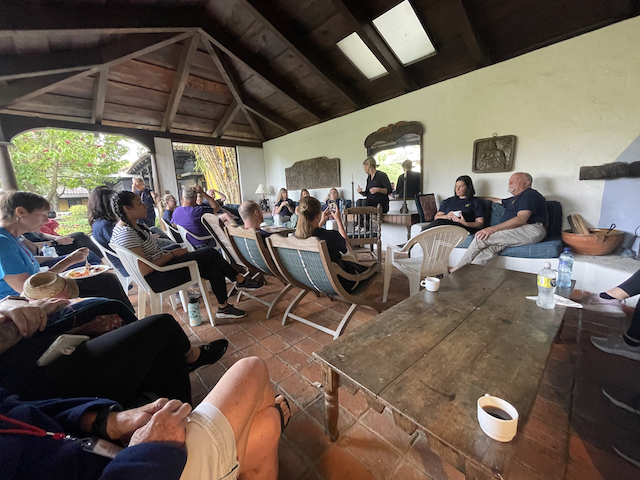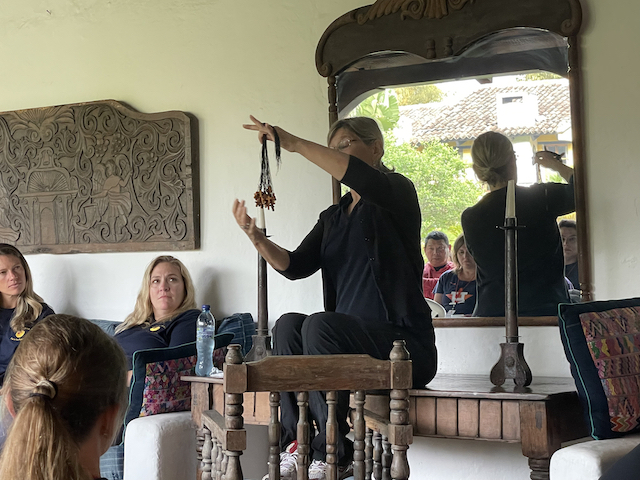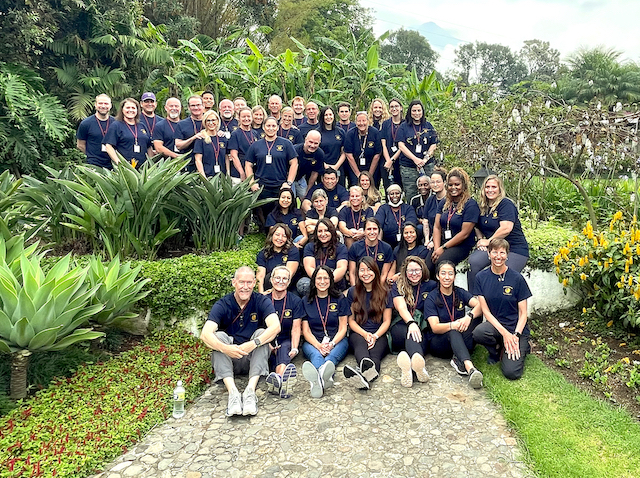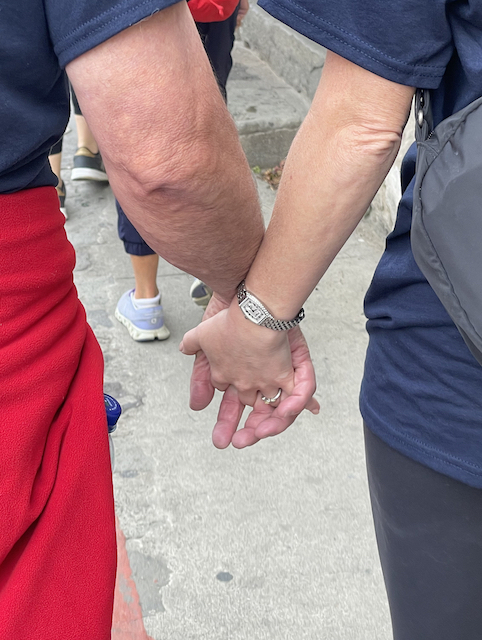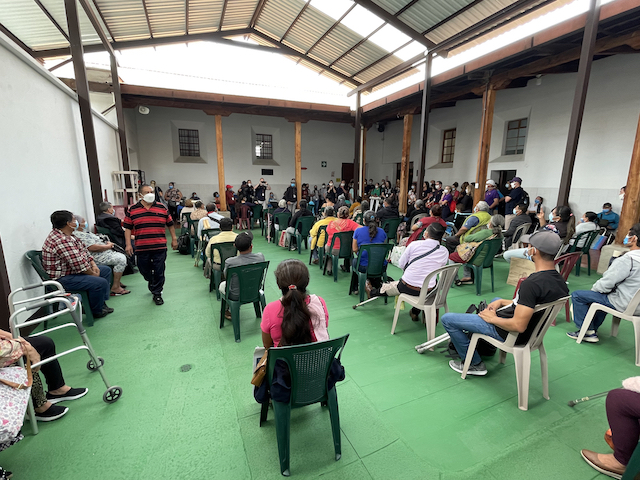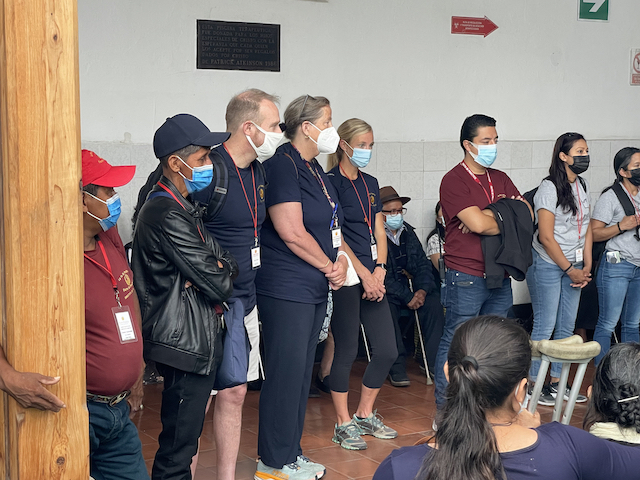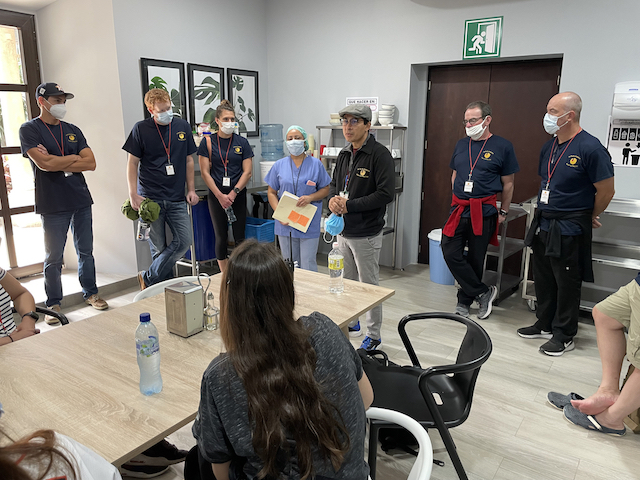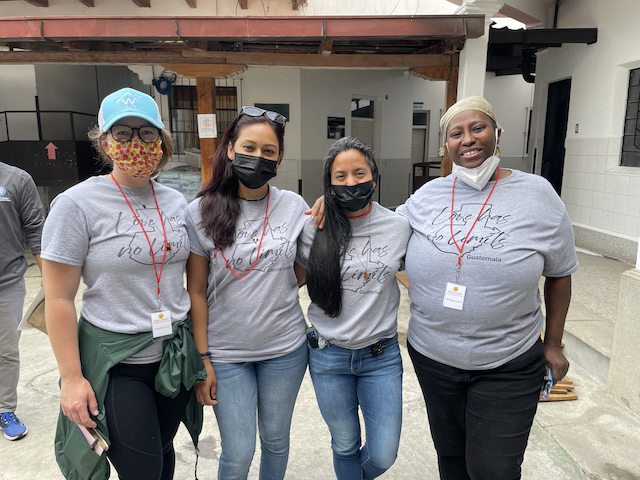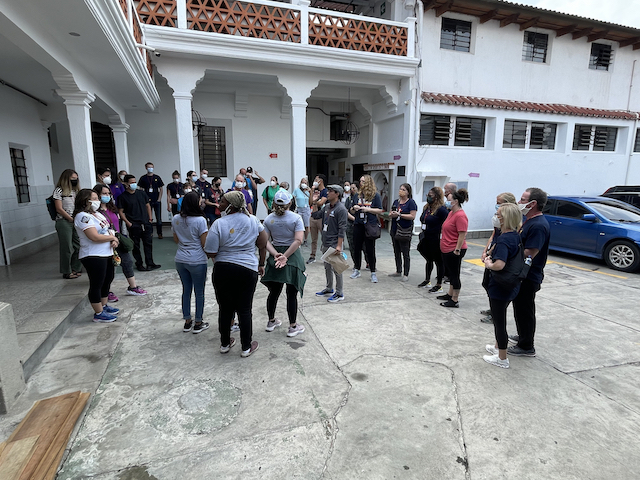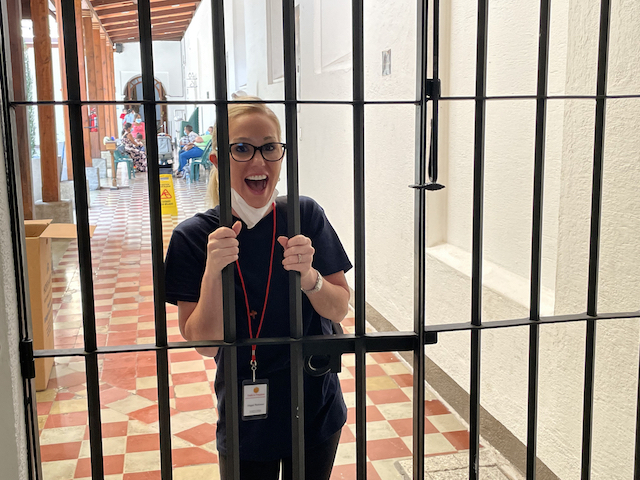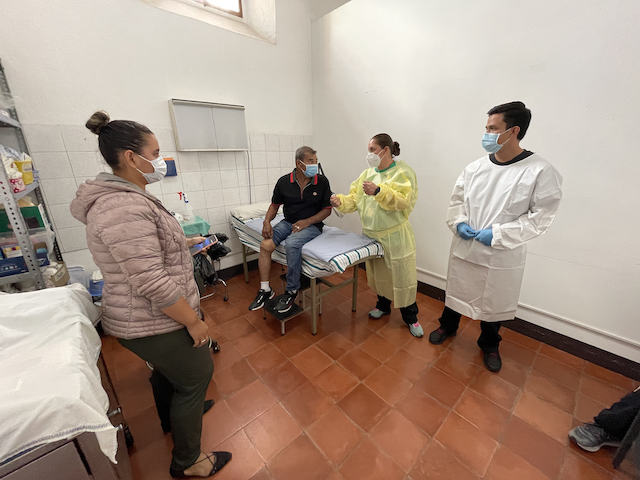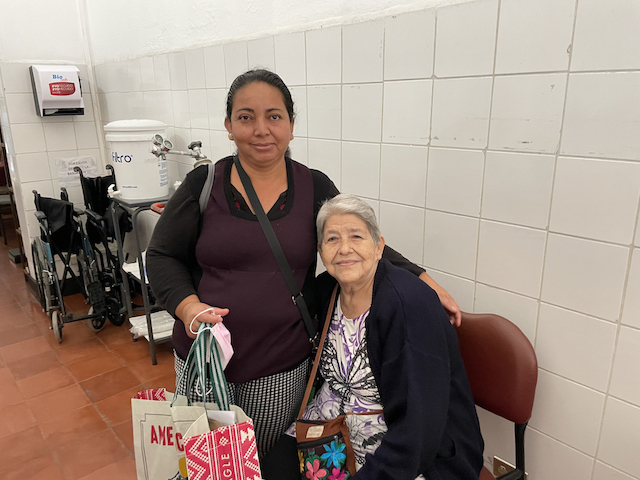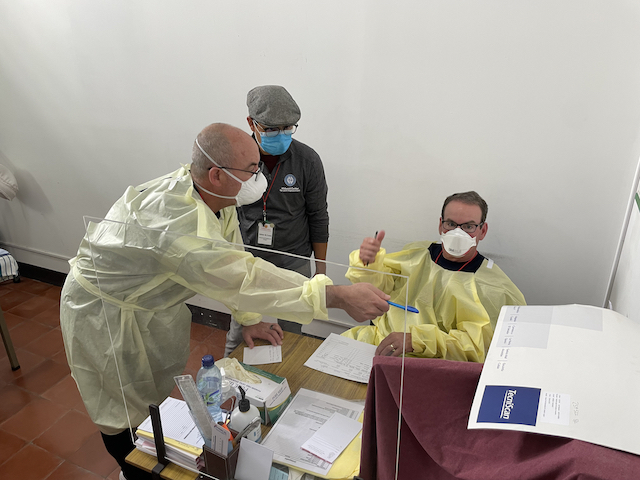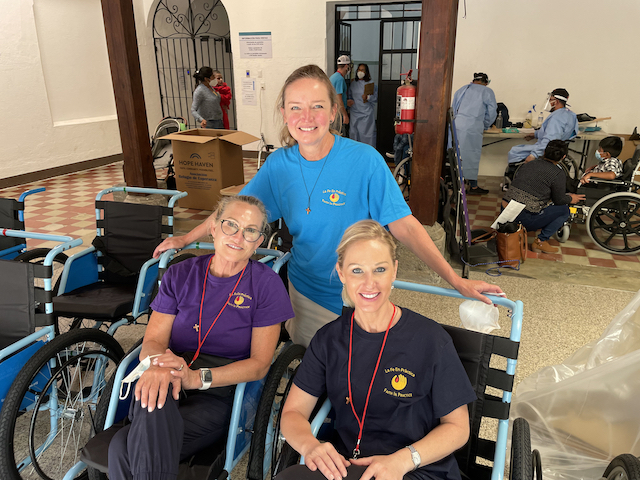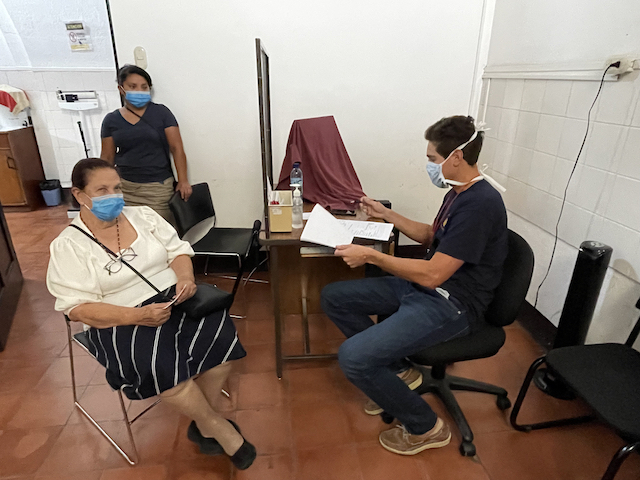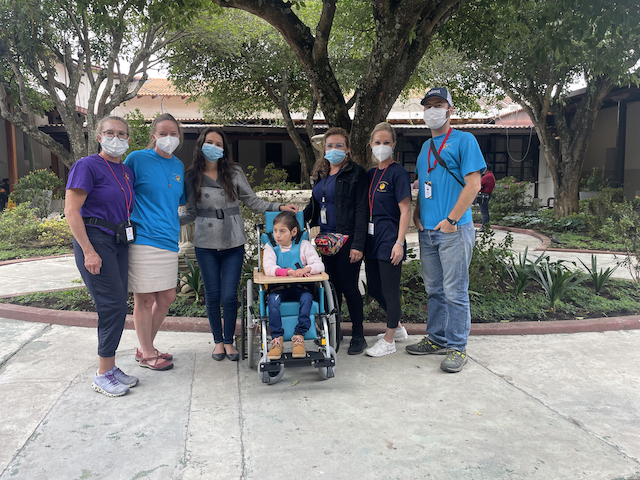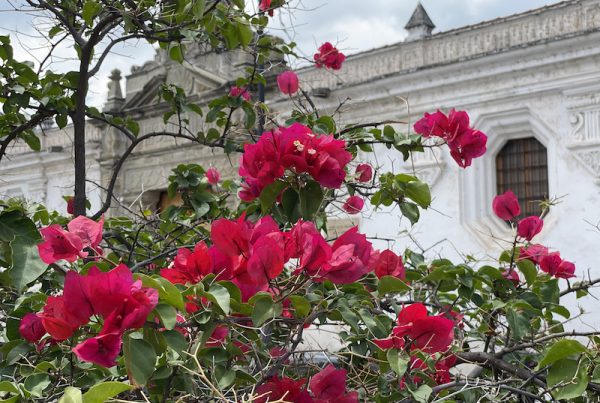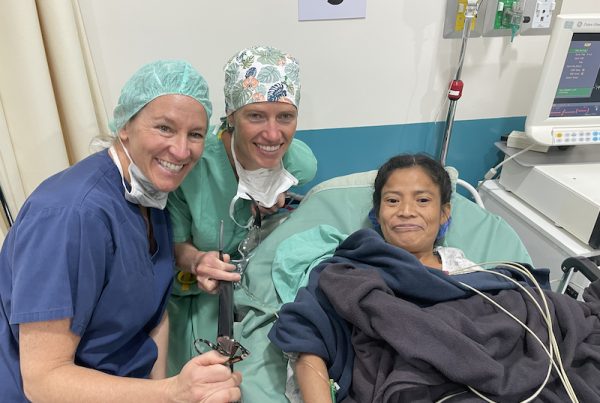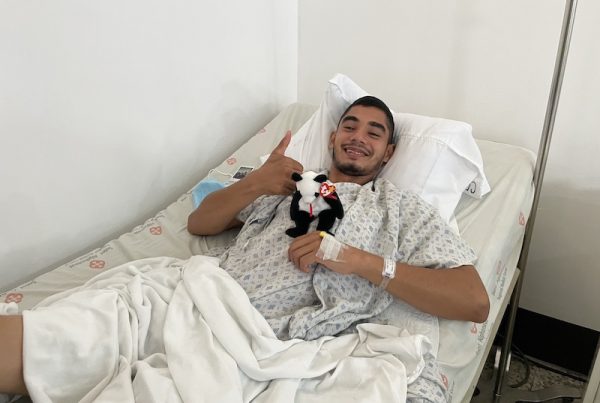I’ll start by saying that even with volunteers coming from Colorado, Baltimore, Chicago, Dallas, Houston, Reno, El Paso, and other cities I don’t recall right now, our travel to Antigua yesterday (Saturday) went well for most everyone. That said, the Guatemala City traffic was much worse than normal, converting what is normally a 90-minute drive from the airport to the hotel into close to a 3-hour drive. But everyone finally made it to the Hotel Quinta de Las Flores and we enjoyed another wonderful evening of fellowship.
Sundays for FIP ortho surgery teams in Antigua are almost always dedicated to two general activities (there are others, of course). First, the surgeons and anesthesiologists, working in concert with the physical therapists and interpreters meet with the patients for final medical screening, and if approved by both teams, are placed on the 4-day surgery schedule (Monday through Thursday). Because of the thorough screening that precedes the patients’ arrival for the triage day, most are placed on the schedule and receive their much-awaited and life-changing surgery. I’ll get back to this shortly.
The other equally important activity is focused on prepping the OR suite for the surgeries that will occur throughout the week and involves the efforts of a great many of the team members (maybe more than half). While to the uninitiated this may seem like a mundane task, it is an incredibly important one because if not done with a great deal of organization, forethought, knowledge, and attention to detail, the week ahead would not go nearly as well as it can and should, and ultimately, might even limit the number of patients who could receive the surgeries they need, and for which they have waited so long (in some cases, well more than 3 years, especially with the “pause” necessitated by COVID).
Returning to the topic of triage, today I had the occasion to meet and talk at length in the courtyard with Marina, a patient who received her operation a year ago, performed by Dr. Parsley, to replace her right hip. She shared with me through tears of joy just how profoundly her life had been improved by that surgery, and that she had returned to the hospital today at Dr. Parsley’s request (presumably a year ago) for a follow-up visit. We spent maybe 20 minutes talking about how her life had been changed, and how deep her appreciation was for how the Lord had worked through the lives of Faith In Practice and all of the volunteers to bring about her healing and restoration. We were both sobbing by the end of our unforgettable conversation.
On the other hand, Chris, the veteran anesthesiologist from Houston Methodist, and I screened a 72-year-old patient (I apologize, but her name escapes me) who after several years of pain-filled waiting, had come for a knee repair/replacement. Unfortunately, and sadly, she had some serious cardiac issues that would have made her surgery in Guatemala highly risky, especially if she experienced any complications either in surgery or post-surgery. The surgical and clinical resources just aren’t available here, and even in the US, the surgery would have been high-risk requiring several additional safety measures. In the end, the anesthesiologists’ deliberations resulted in what was a heart-wrenching conversation in which our team had to explain to her that it would not be safe to perform the operation in Guatemala. As does happen from time to time, she had to leave the clinic profoundly disappointed, knowing that it was unlikely she was ever going to gain permanent relief simply because she lives in the wrong place. It’s a sad but all-to-common reality in much of Latin America. It’s strange how we often experience the same powerful emotions, caused at times by completely different circumstances. Until tomorrow or Tuesday….


